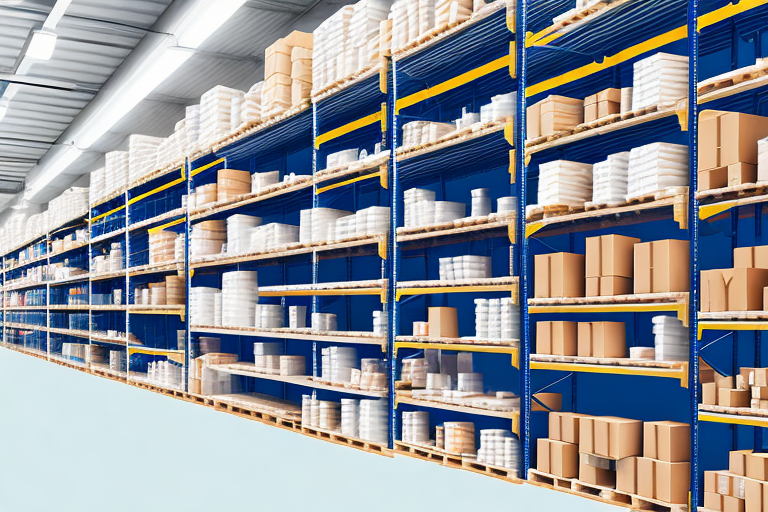The Importance of Efficient Health Care Logistics
Efficient health care logistics are essential for ensuring that medical facilities have the necessary supplies and equipment to provide effective patient care. Quick and timely deliveries of supplies and equipment can make all the difference in emergency situations, such as natural disasters or pandemics, where the availability of essential medical supplies and equipment can save lives. According to a report by the World Health Organization, effective logistics management can significantly reduce response times in crises.
Impact on Patient Care
Timely availability of medical supplies directly affects patient outcomes. Delays in equipment or medication can result in adverse health effects or even fatalities.
Cost Reduction and Resource Optimization
By streamlining the supply chain process, medical facilities can avoid unnecessary delays and expenses associated with stockouts, overstocking, and expired products. According to a Health Affairs study, optimized logistics can lead to substantial cost savings, allowing funds to be redirected towards patient care and medical innovation.
Sustainability in Health Care Logistics
Efficient health care logistics contribute to the sustainability of the healthcare industry. By optimizing resource use and reducing waste, medical facilities can minimize their environmental impact. Implementing eco-friendly packaging and recycling programs are effective strategies in promoting sustainability.
Streamlining Health Care Supply Chains with Logistics Products
Healthcare supply chains are inherently complex, involving multiple stakeholders and processes. The integration of health care logistics products simplifies these processes, enhancing overall efficiency and reliability.
Automation and Inventory Management
Logistics products automate inventory tracking and management, reducing human error and ensuring accurate stock levels. Automated systems facilitate faster reordering and inventory audits, as highlighted in a study by the National Institutes of Health.
Waste Reduction Strategies
By maintaining optimal inventory levels, logistics products help prevent overstocking and understocking, which are major sources of waste. Additionally, these systems track expiration dates, ensuring that products are used efficiently before they expire.
Enhanced Supply Chain Visibility
Real-time tracking and monitoring provided by logistics products offer increased visibility into the supply chain. This allows facilities to promptly identify and address any disruptions or inefficiencies.
Enhancing Patient Outcomes with Health Care Logistics
Health care logistics products play a pivotal role in improving patient outcomes by ensuring the timely availability of necessary supplies and equipment.
Timely Delivery of Supplies and Equipment
Accurate inventory management reduces delays in critical treatments. According to the Joint Commission, timely access to medical supplies is crucial for maintaining high standards of patient care.
Reduction of Medication Errors
Medication management systems track patient dosages and schedules, significantly reducing the risk of errors. This leads to safer patient care and improved health outcomes.
Infection Control and Prevention
Effective logistics ensure that sterilization and disinfection products are readily available, helping to prevent the spread of infections within healthcare facilities.
Patient Satisfaction
Ensuring that patients have access to the necessary supplies and equipment contributes to a more comfortable and positive healthcare experience, thereby increasing patient satisfaction.
The Role of Technology in Modern Health Care Logistics
Advancements in technology have revolutionized health care logistics, making supply chain management more efficient and secure.
RFID and Barcode Technologies
Radio-frequency identification (RFID) and barcode scanners enhance the accuracy of inventory tracking, reducing errors and improving overall management.
Data Analytics and Predictive Tools
Data analytics tools predict demand patterns and identify potential bottlenecks, allowing facilities to proactively address supply chain challenges.
Advanced Security Systems
Technologies such as biometric authentication and video surveillance protect medical supplies from theft and unauthorized access, ensuring the integrity of the supply chain.
Selecting the Right Health Care Logistics Products
Choosing the appropriate health care logistics products is critical for optimizing supply chain processes and enhancing patient care.
Assessing Facility Needs and Budget
Consider the size of your facility, budget constraints, and specific patient population needs when selecting logistics products to ensure the best fit.
Automation vs. Manual Systems
Evaluate the level of automation offered by logistics products. While automated systems can reduce errors and increase efficiency, they may require higher initial investments.
Environmental Impact and Sustainability
Opt for logistics products made from sustainable materials and those that contribute to a lower carbon footprint to promote environmental responsibility.
Training and Support
Ensure that the logistics products chosen come with comprehensive training and support to facilitate smooth implementation and usage.
Innovative Trends and Future Directions in Health Care Logistics
The health care logistics industry is continuously evolving, with new technologies and methodologies emerging to address existing challenges.
Wearable Technology
Wearable devices enable remote patient monitoring, reducing the need for physical presence and improving data accuracy.
Drone Delivery Systems
Drones are being utilized to deliver medical supplies to remote or hard-to-reach areas, significantly reducing delivery times.
Blockchain for Supply Chain Management
Blockchain technology offers a secure and transparent way to track the movement of medical supplies, ensuring authenticity and reducing the risk of counterfeit products.
AI and Machine Learning Integration
Artificial intelligence and machine learning are being integrated into logistics systems to enhance predictive analytics and decision-making processes.
Ensuring Compliance and Sustainability in Health Care Logistics
Compliance with safety standards and sustainability practices is paramount in health care logistics to ensure effective and responsible operations.
Regulatory Standards and Safety Protocols
Adherence to industry regulations and safety protocols is essential for the proper handling, storage, and transport of medical supplies.
Sustainable Practices and Eco-friendly Solutions
Implementing sustainable logistics practices, such as using environmentally friendly packaging and optimizing transportation routes, contributes to environmental conservation.
Case Studies of Successful Implementations
Real-life examples, such as the implementation of RFID technology at Sutter Health, demonstrate the tangible benefits of effective health care logistics management. This led to significant cost savings and improved operational efficiency.
Maximizing ROI with Strategic Investments
Strategic investments in health care logistics products can lead to reduced costs, improved patient outcomes, and enhanced supply chain efficiency, thereby maximizing return on investment.
Conclusion
The benefits of health care logistics products are extensive, ranging from improved operational efficiency to enhanced patient outcomes. By adopting innovative logistics solutions, healthcare facilities can maintain high standards of patient care while optimizing their supply chain processes. As the healthcare industry continues to evolve, embracing advanced logistics technologies will be crucial for sustaining efficiency and effectiveness in delivering quality patient care.






















